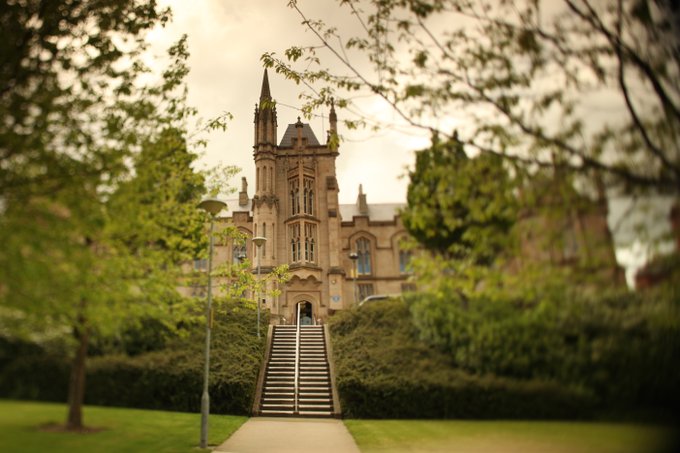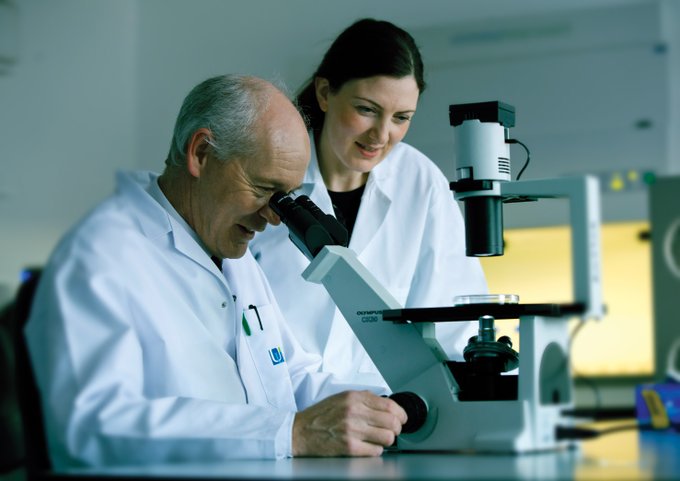 MEMBERS of Derry City and Strabane District Council’s Governance and Strategic Planning Committee heard today how Council is forging ahead with the next stage of the City Deal and the City and Region’s Strategic Growth projects.
MEMBERS of Derry City and Strabane District Council’s Governance and Strategic Planning Committee heard today how Council is forging ahead with the next stage of the City Deal and the City and Region’s Strategic Growth projects.
In a detailed report by the Council’s Chief Executive, John Kelpie, members were told how the £105m of funding towards a City Deal was an important component of the overall funding of the City and District’s Strategic Inclusive Growth Plan and that Council are working with all its partners to build on the next stages of the process.
He said significant progress had been made in terms of the scaling and prioritisation of projects, the proposed governance structures and the processes and timelines involved since the initial funding announcement in May.
In relation to strategic projects included in the City Deal, the core focus of the UK Government £50M City Deal funding remains the delivery of the centres of innovation and excellence in data analytics (CARL) and robotics and automation (CIDRA) together with the key smart/ digital City and Region initiatives.
At the meeting, representatives from Ulster University said that Outline Business Cases in respect of these priority projects are currently being further developed in line with Government funding guidelines.
It was explained to members how the Cognitive Analytics Research Lab or CARL is a transformational new cutting-edge Applied Research Centre from Ulster University will bring together businesses, government and Artificial Intelligence expertise with academia.
It will consolidate the expertise that already exists at the University and complement it with new resources to create a centre that is world leading in research and dedicated specifically to cognitive analytics.
Members heard how cognitive analytics is rooted in the growth area of artificial intelligence and the proposed new CARL centre of innovation would seek to exploit the massive advances in high performing computing by applying artificial intelligence and machine learning techniques to big data.
The CARL innovation centre would provide the city with global opportunities to become world class in areas such as software engineering, advanced networks and sensors, data analytics and cyber security and would offer huge potential to the city and wider region’s economic development.
Referring to the Centre for Industrial Digitalisation, Robotics and Automation (CIDRA) innovation project, members were told how the proposed innovation centre will support industry and commerce in Northern Ireland based at the Magee campus in the exploitation of industrial digital technologies, robotics and automation.
Members were also informed that the overall aim of the CIDRA project is to future proof NI industry and provide pathways towards the development of innovative products and allow existing companies to increase their productivity.
It also aims to help establish new business by remaining competitive through the use of emerging digital technologies in their operations.
The importance of CIDRA in providing industrial and commercial support to businesses across Northern Ireland was highlighted to members who were informed that the innovation centre will focus on research, development and demonstration of the five key technologies – artificial technologies, robotics, automation, the internet of things and industrial digital technologies – that are essential for future industrialisation.
Once developed the centre will provide state of the art demonstrator facilities in robotics, automation and become a leader in pursuing international led research in the application of artificial intelligence in industry and commerce.
Members were told that a key element of this innovation project was the provision of mechanism to support the transfer of skills and expertise to company staff and university students.
In relation to the prioritisation of the Future Fund of £55m and the further anticipated match funding from NI Government and other partners, the emphasis is on advancing with projects such as the Graduate Medical School as a key catalyst for the much-needed expansion of the Ulster University Magee Campus.
 The delivery of a Personalised Medicine Centre of Excellence (T-HRIVE) at Ulster University and Altnagelvin is also a priority for this fund as is the provision of an integrated, Council-wide, multi-skills employment pathways intervention support programme.
The delivery of a Personalised Medicine Centre of Excellence (T-HRIVE) at Ulster University and Altnagelvin is also a priority for this fund as is the provision of an integrated, Council-wide, multi-skills employment pathways intervention support programme.
The report advised that work on these innovation projects as well as the proposed SMART and digital city projects were advancing in close collaboration with local industry and partners and relevant government departments, while the strategic outline cases for major regeneration projects for Derry City and Strabane Town Centre are at an advanced stage of progress.
Speaking about the Development of Personalised Medicine Centre of Excellence and how it would focus on harnessing the power of Genomics to predict and diagnose inherited and acquired disease, and to personalise treatments and interventions, the Ulster University representatives said it will expand its partnership with Genomics Ireland and other commercial enterprises to sequence the genomes of 10% of NI’s population contributing to a research database that can be interrogated to develop personalised medicine solutions with worldwide application and valuable I.P. and how it will also contribute to health improvement locally through a unique ‘community buy-in’ approach.
In terms of funding, it was reiterated to members that in addition to the £105m UK Government funding, Council and stakeholders were working on the assumption that this full amount would be matched by NI Government albeit that at this stage no funding commitment could be provided in the absence of a regional government.
It was further emphasised that at present business approval for the medical school and associated revenue funding remains a critical issue to be reviewed.
Discussions with third party stakeholders including the Irish Government are progressing with a view to establishing an overall eventual funding package leveraged by City Deal of £250-300m.
In relation to the contribution from Council, Mr Kelpie said any Council funding would be dependent on the progression of all other funding streams, overall impact and affordability and that Council’s focus will be investment and regeneration in Derry City Centre and Strabane town centre.
He reiterated Council’s ongoing commitment to securing additional funding to advance with the A2 Buncrana Road project and other connectivity projects including rail improvement, support for the City of Derry Airport, complete delivery of the A5 and A6 upgrades, together with the full expansion of Magee as a critical priority project for the City and NW region.
Following some expressions of concern from members around the level of commitment from the Ulster University to deliver on the expansion of the university and deliver on key projects, assurances were provided by the Provost Dr Malachy O’Neill that the Ulster University is fully committed to working with Council and its partners to deliver on all aspects of the City Deal and the further expansion of Magee.
There was some concern expressed by members regarding confirmation of capital and revenue funding for the projects within the City Deal.
Concluding Mr Kelpie said Council was continuing to work with Government to formalise the governance structures and work was ongoing in relation to analysis of other City Deals, with a further report expected in the coming months.
He said the Council will continue to work with Government and its key partners to set out and agree the pathway and timelines for achieving the next stage, the Head of Terms’ agreement.
Further details of the report are available on the Council website at https://bit.ly/2lzcdAo
Tags:




